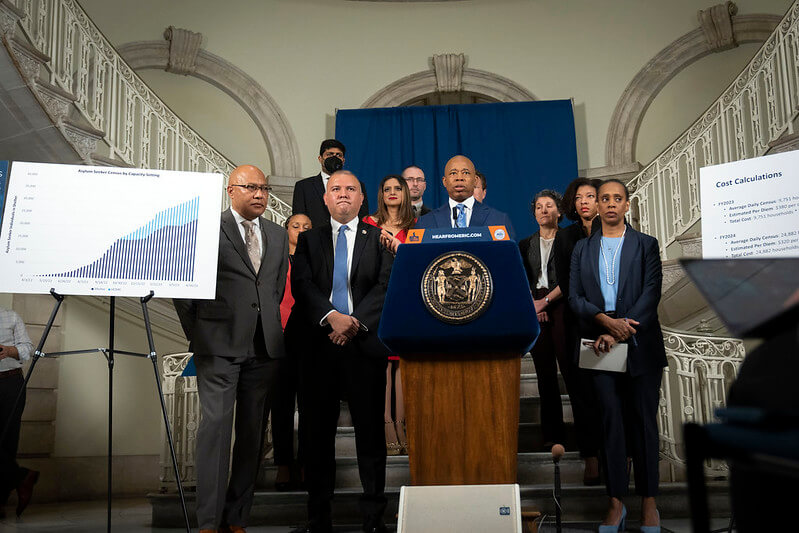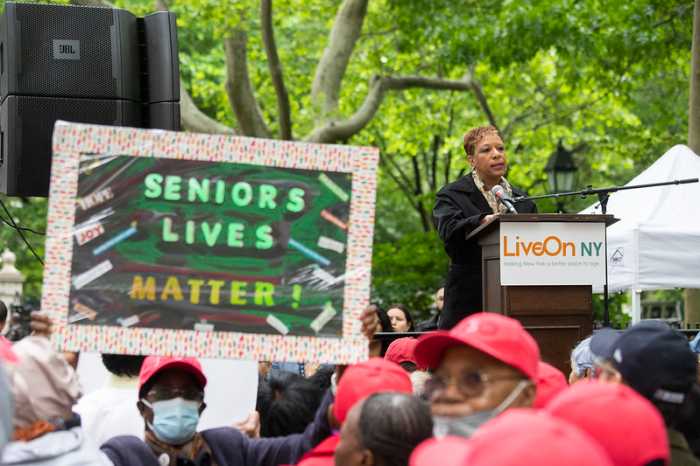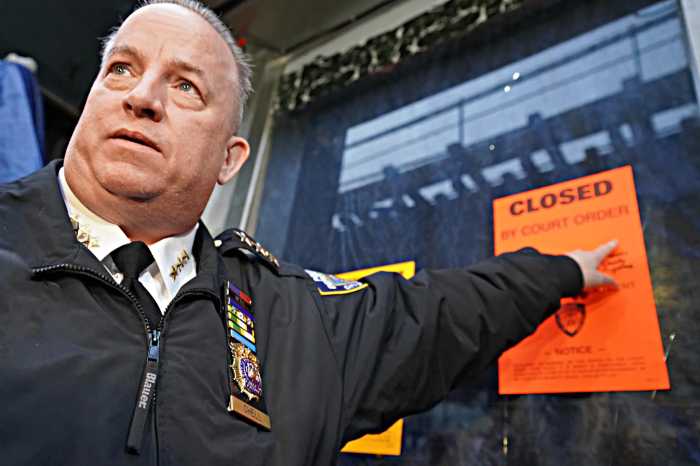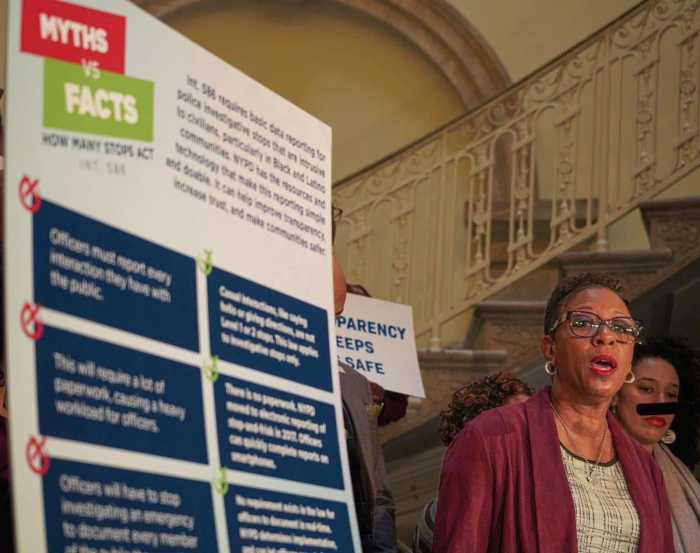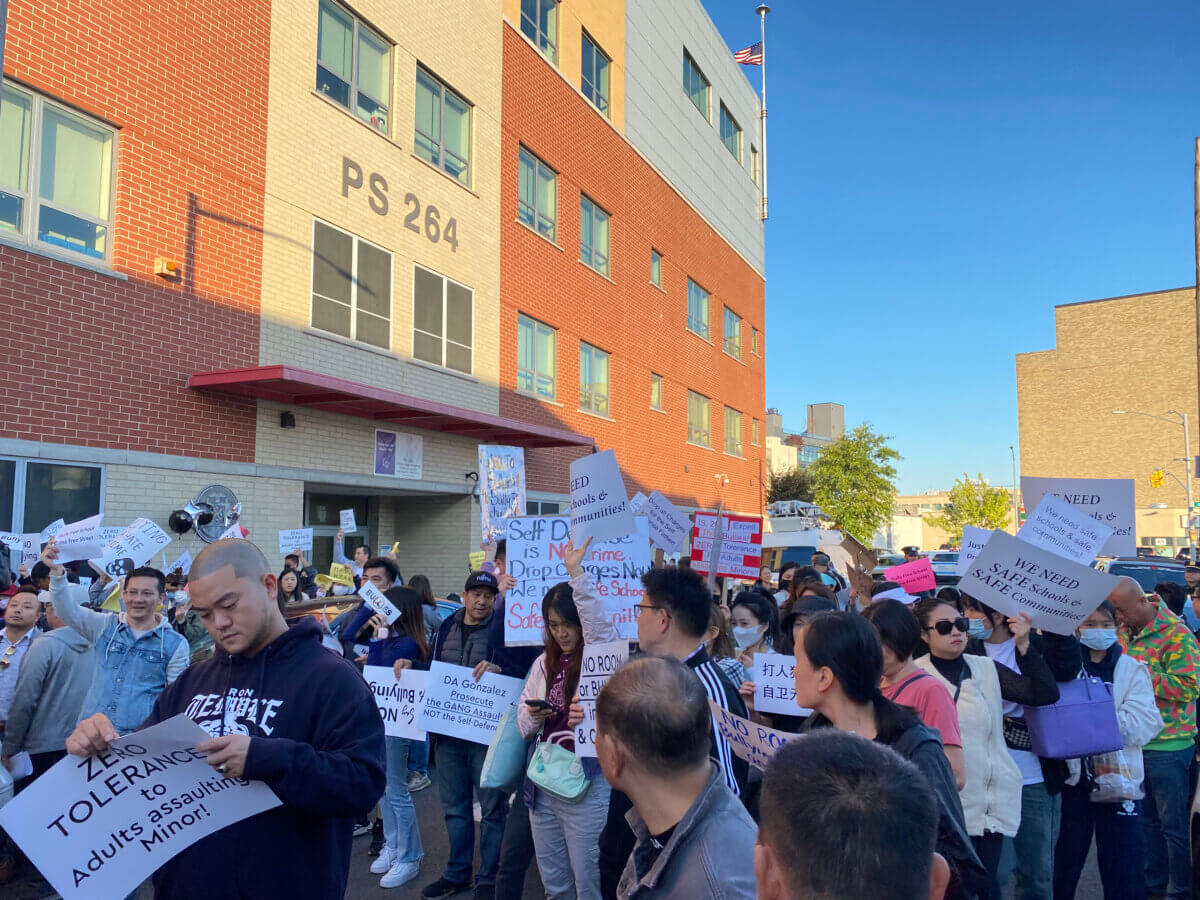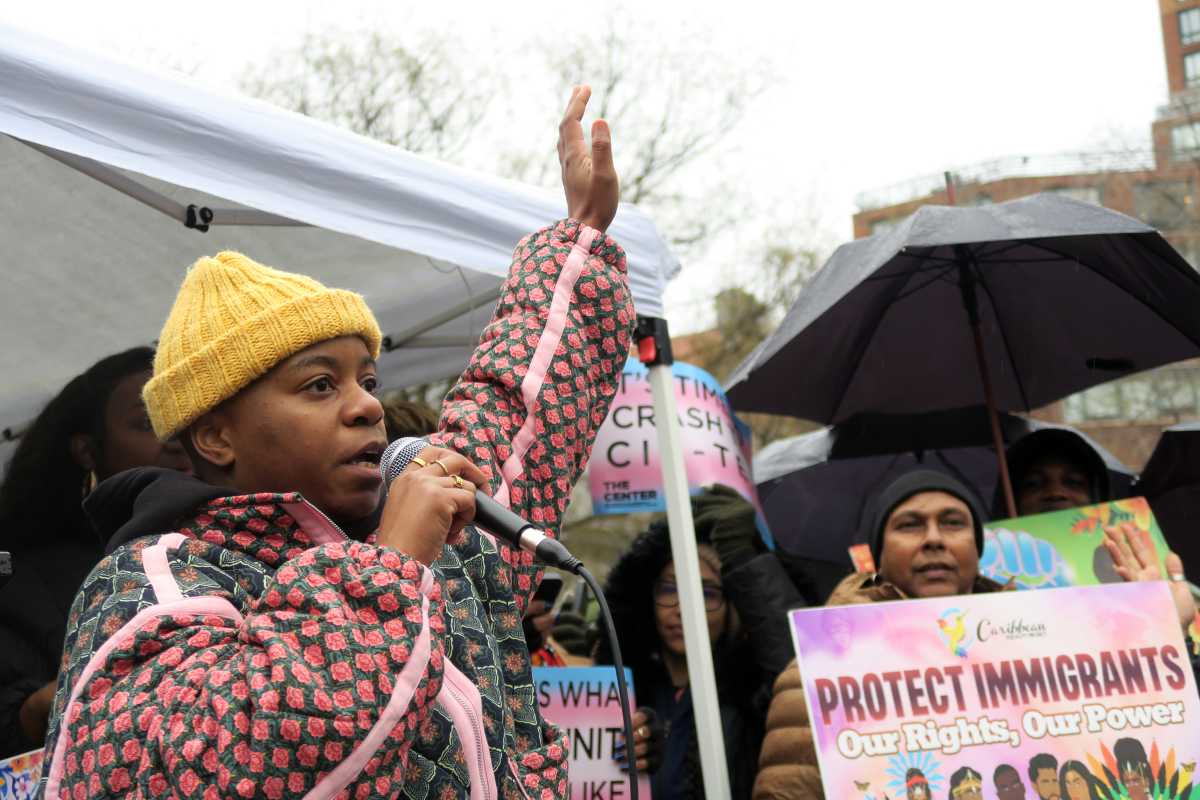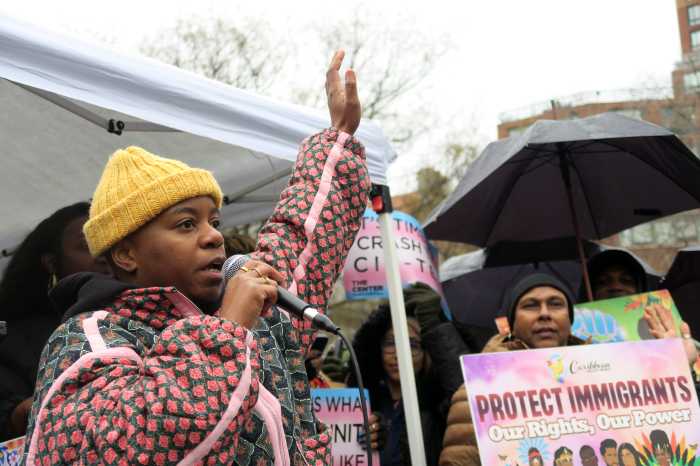With Mayor Eric Adams’ calls for the White House to assist the city with the migrant crisis falling on deaf ears, he declared on Wednesday that “the national government has turned its back on New York City.”
Adams made the pronouncement — perhaps his sharpest rebuke of President Biden to date — as he called on the White House to pursue pathways for granting work authorizations to the city’s over 55,000 recently arrived migrants who are seeking to work during a Wednesday morning news conference at City Hall. He also decried the mounting cost of the crisis, which his budget director now estimates will reach $4.3 billion over the current and next fiscal years, while emphasizing it’s been the driving force behind his most recent round of budget cuts.
Adams’ preliminary budget proposal for the coming fiscal year totaled $102.7 billion.
While getting financial assistance from the feds for the crisis seems nearly impossible with House Republicans controlling Congress’ purse strings, Adams said giving work authorizations to migrants falls squarely on Biden, as it’s something he can do without Congressional approval.
“This is in the lap of the President of the United States. The President of the United States can give us the ability to allow people to work,” the mayor said. “We’re calling [on] the Biden and [Vice President Kamala] Harris administration, the United States Department of Homeland Security (DHS), they must use all tools that are available to resolve this issue. We want them to ensure asylum seekers can start to work immediately. Fortunately, they can act with a stroke of a pen.”
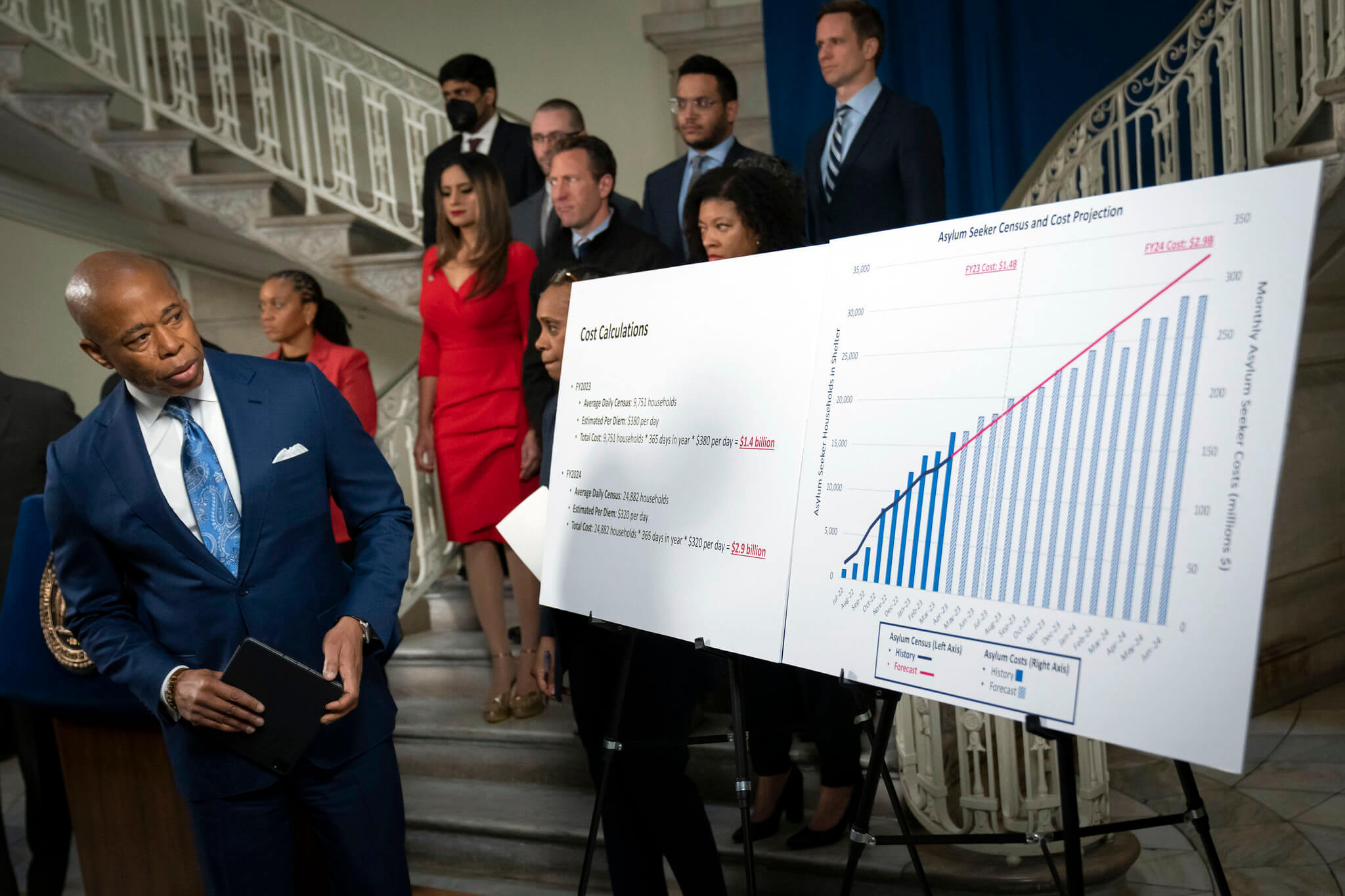
Adams said the feds can allow more migrants to work by following three main paths: re-designating and extending Temporary Protected Status (TPS) for migrants from several countries including Venezuela, Honduras and El Salvador; expanding access to humanitarian parole for newly arrived asylum seekers and those who are already in the country; and increasing the number of immigration workers who process TPS applications, so they can be reviewed more quickly.
Although many of the asylum seekers who’ve arrived here over the past 12 months are ready and willing to work, Adams said, Washington isn’t allowing them to.
“We have always said that the asylum seeker crisis is a national crisis that requires a coordinated response from the federal government,” Adams said. “It is why we need the federal government to take these necessary steps that would allow asylum seekers to support themselves and integrate into our communities. And we hear those who are saying ‘Why aren’t they working?’ Well, this is why they’re not working, they’re not given the authorization to do so. And this is wrong.”
According to Mayor’s Office of Immigrant Affairs Commissioner Manuel Castro, not permitting migrants to seek legal employment forces them to work off the books. That could ultimately lead to them getting deported back to the countries they fled from — in many cases to escape political violence.
“Not giving the ability to someone to work legally, and be able to provide for themselves and for their families is cruel and inhumane,” Castro said. “You put asylum seekers in a desperate situation. If they work informally, they risk being deported, and [are] forced to return back to the dangerous places they are fleeing from. And for some, this means being separated from their families.”
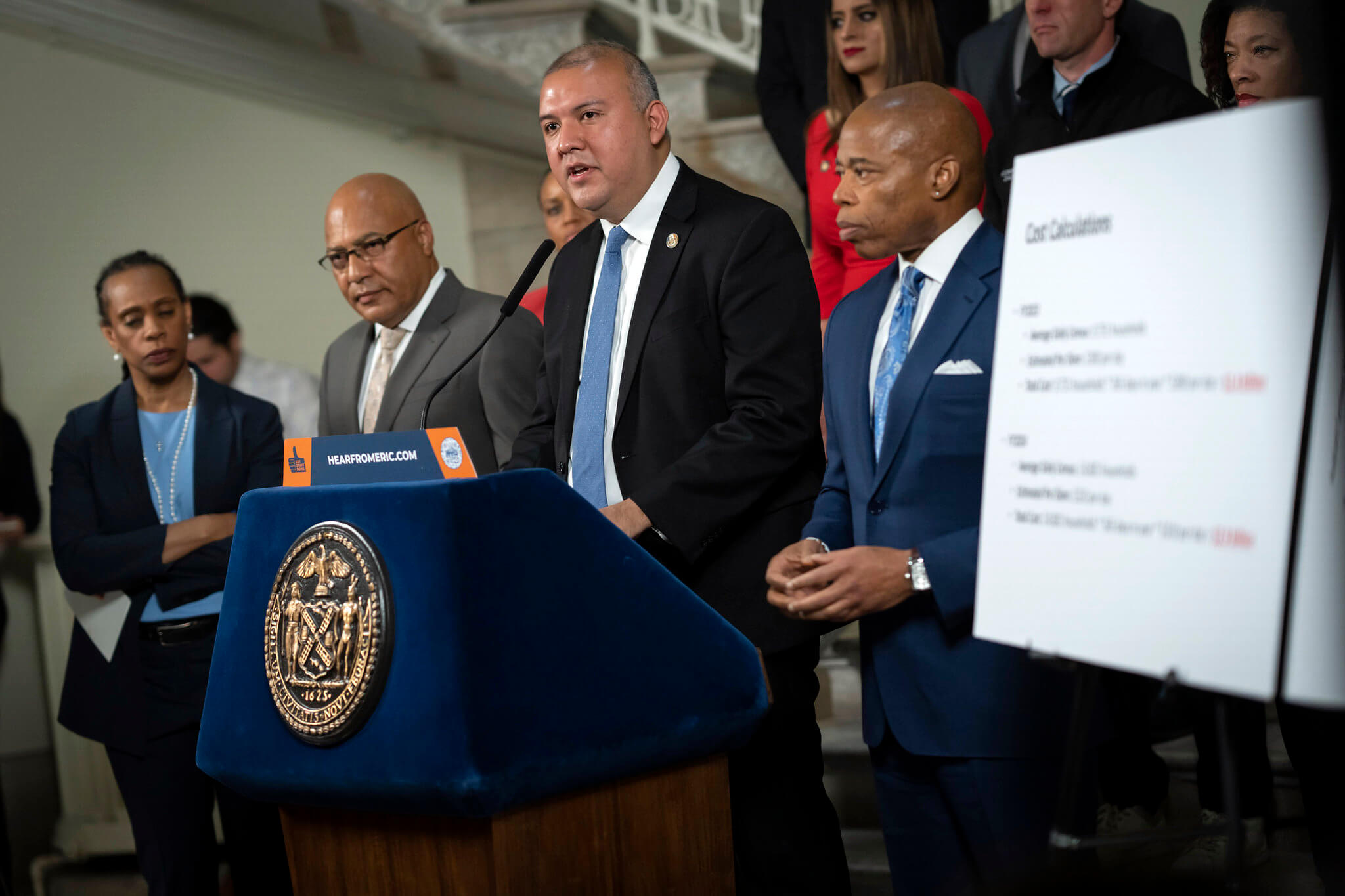
The mayor said Biden needs to move quickly on enacting these policies before Title 42, a pandemic-era rule the administration has used to limit the number of migrants flowing into the country, expires on May 11. When the rule lifts, he said, the number of asylum seekers flowing to the city could double.
If the feds continue to ignore the city’s pleas for help, Adams said the influx’s estimated $4.3 billion price tag could “undermine” progress it has made in recovering from the COVID-19 pandemic by forcing his administration to further cut critical city services. The city has already spent $817 million on the crisis as of the end of last month.
The mayor’s budget director, Jacques Jiha, said the projected tab is a “huge burden” on the Big Apple and trimming agency budgets — a process he referred to as finding efficiencies — is the only way to manage it.
“You can imagine, a year ago we didn’t have this in our budget, and all of a sudden we have to come up with $4.3 billion,” Jiha said.
So far, the only help the city is getting, Jiha said, is $1 billion proposed in Governor Kathy Hochul’s executive budget for the coming fiscal year. However, it’s not yet clear if Albany will deliver on that money, considering the state budget is over two weeks late and negotiations have focused entirely on other issues. The Big Apple is also due to get some portion of an $800 million federal allocation for cities on the front lines of the crisis.
But, taken together, that’s hardly enough to cover the estimated expense.
“The city has to, at a minimum, come up with $3 billion,” Jiha said. “We’re not raising taxes. So the only way we can manage this is to find efficiencies in other places in city government … This is not cheap and folks have to understand, the money has to come from somewhere.”
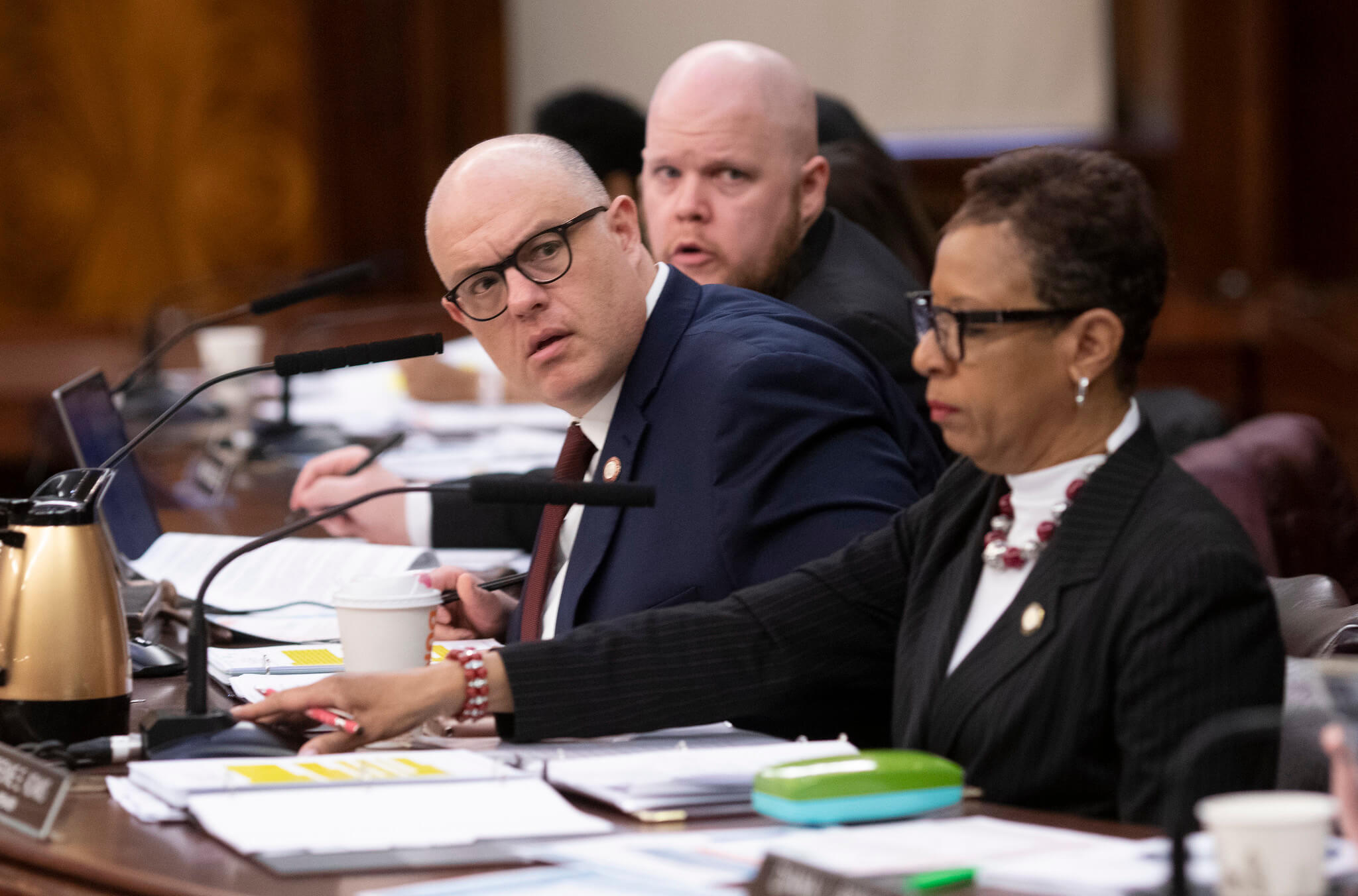
The mayor took aim at leaders of the City Council in particular for putting forth a budget proposal earlier this month that reversed many of his proposed agency budget cuts by utilizing what they say is $2.7 billion more in city revenue than what his office projected. He argues the council didn’t factor the cost of the migrant crisis into their plan and released a “false” projection.
“Did you notice that everyone that puts forward a report on balancing the budget, none of them talk about the asylum seekers,” Adams said. “All the proposals that people are putting in place, what’s coming out of the City Council and other places, of how to balance the budget, it’s void of asylum seekers.”
Yet City Council Finance Chair Justin Brannan (D-Brooklyn), said that based on the council’s projections the city has enough funds in its coffers to care for the asylum seekers without following through on the mayor’s cuts.
“As I’ve said, our city’s compassion is limitless but our resources are finite,” Brannan said in a statement to amNewYork Metro. “We desperately need help from Albany and DC to cover asylee costs. Speaker [Adrienne Adams] and I have written to the president in support of the mayor’s call for emergency migrant funding.”
“The council’s objective budget forecast and our desperate need for help from Albany and DC to cover asylee costs – need not live in tension,” he added.



